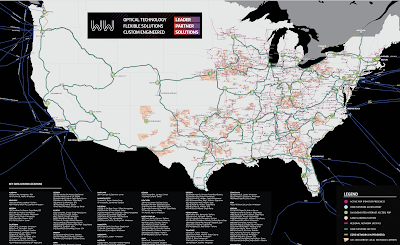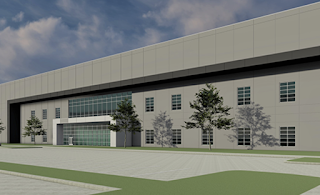Windstream Wholesale completed interoperability testing of QSFP-DD form factor ZR+ pluggable modules from II-VI and Acacia, now part of Cisco.
The tests established 400 Gigabit links in a production environment over a 1,027-kilometer link. The team also leveraged the Marvell Deneb Coherent DSP within a native 0 dBm II-VI pluggable and the Acacia module using the Greylock DSP. Industry standard oFEC algorithms were also used in the trials.
“These successful trials demonstrate that Windstream Wholesale remains the optical technology leader in making 400G wavelengths the default deployment for large wholesale and hyperscale customers,” said Buddy Bayer, president of Enterprise and Wholesale at Windstream. “Interoperability is key to simplifying high-performance networks in a cost and energy-efficient manner, and no other service provider has done more than Windstream toward making it a reality in the marketplace. This significant achievement validates Windstream’s strategy of open, disaggregated optical networking.”
Windstream also announced it has become the first service provider member of the OpenZR+ MSA.
“We see the OpenZR+ community as well-positioned to make progress around standardization and interoperability in the high-performance transceiver arena,” said Art Nichols, vice president of network architecture and technology at Windstream. “Our goal is not simply to take advantage of our interop and optimization learnings internally, but to also contribute to the industry as a whole in driving open networking forward.”
“We would like to thank Windstream for their industry leadership in driving the technology and hosting the multivendor interoperability trials,” said Matthias Berger, vice president, coherent technology, II-VI Incorporated. “The success of these trials validates the level of maturity of the 400G ZR+ ecosystem which is essential to enable open systems and network architectures such as IP-over-DWDM.”
“As one of the founding members of the OpenZR+ MSA, we are excited to see the industry embracing interoperability and moving towards open networking architectures,” said Tom Williams, senior director of marketing for Acacia, now part of Cisco, and co-chair of the OpenZR+ MSA. “Interoperability and the introduction of new modules, such as our recently announced Bright 400ZR+ QSFP-DD pluggable, will be key to accelerating the adoption of router-based optics in transport networks.”
Karl Gass provides an overview of the OIF's 400ZR multivendor interoperability demonstration at OFC22 in San Diego, California.
Two set-ups are tested:
- 400GE to Transport DWDM link - from an EXFO traffic generator/analyze via NeoPhotonics OSFP traversing a Cisco Open Line System to a Ciena Open Line system to a Cisco CFP-DCO in a Viavi traffic generator/analyzer
- Round robin path consisting of 14 QSFP-DD modules, including modules from Cisco, Juniper, Ciena, Marvell, NeoPhotonics, and Fujitsu
Windstream Wholesale completes 1000 km 400G ZR+ field trials

Marvell intros low power, multi-mode 400G DSP





















